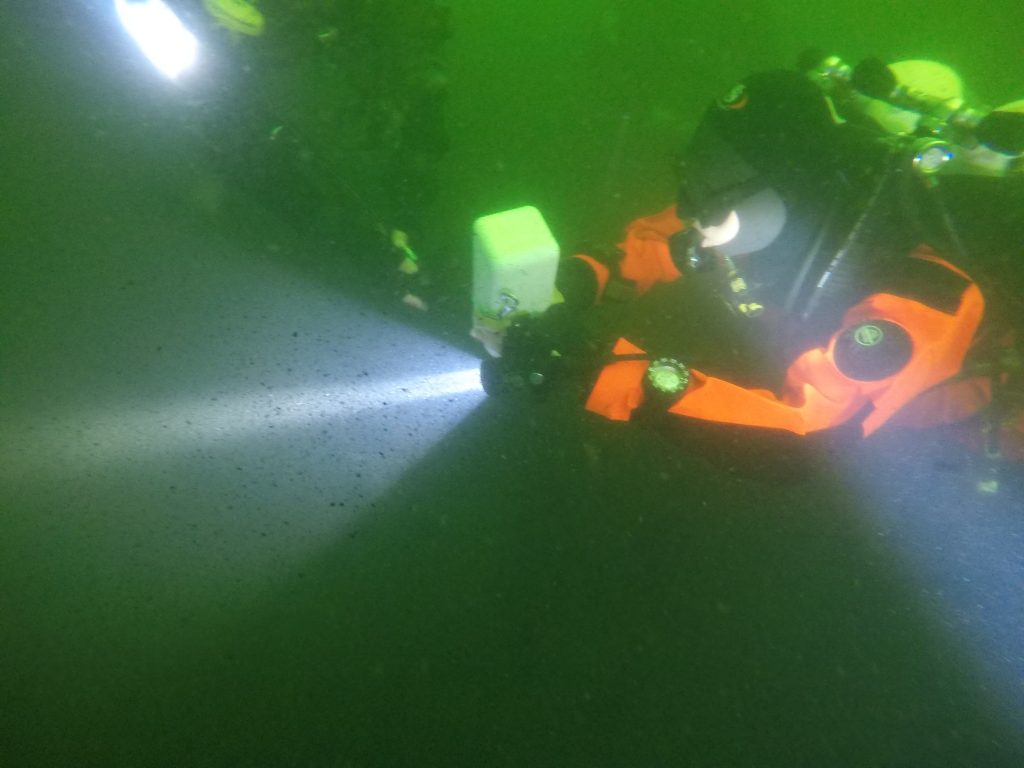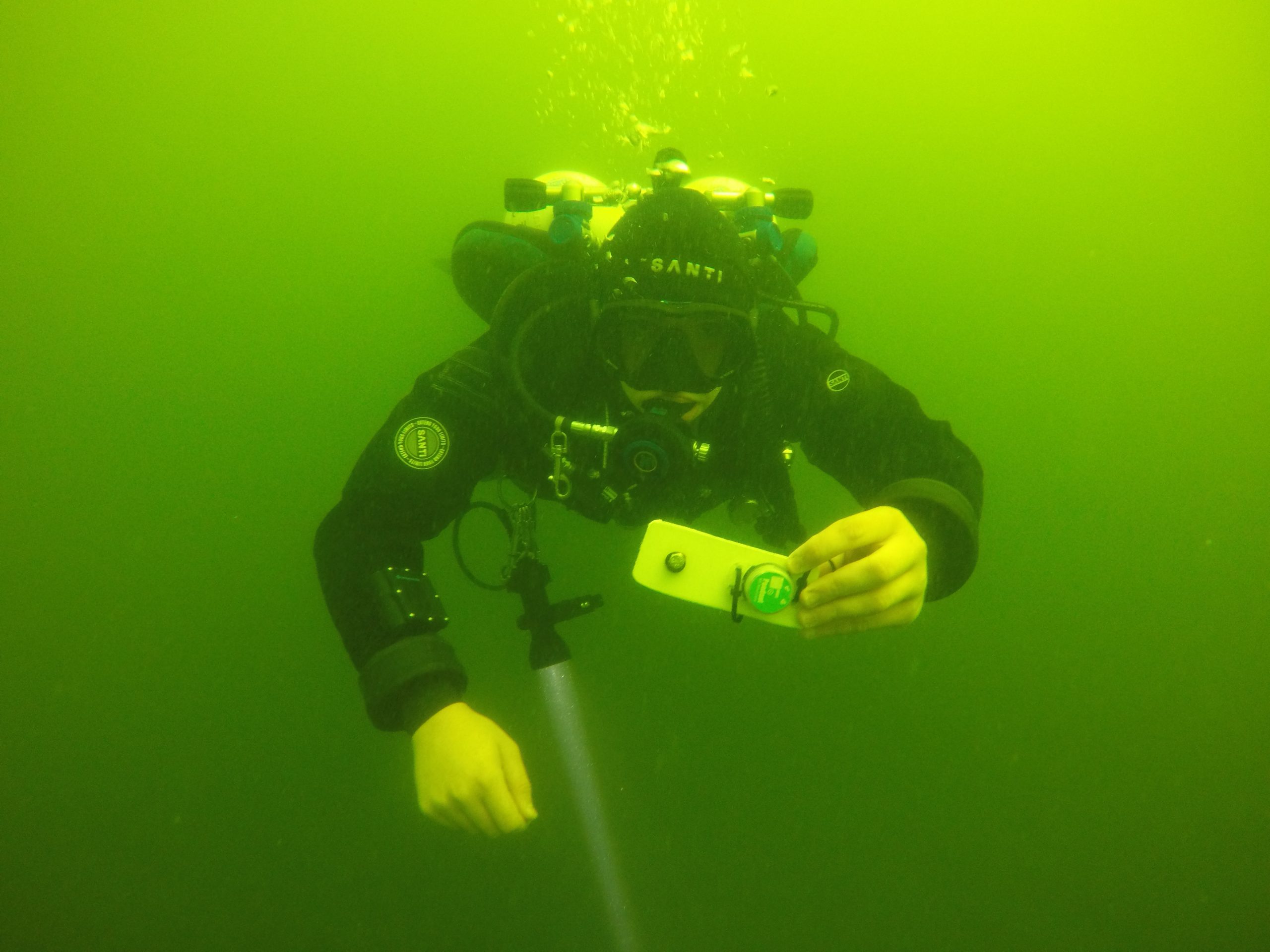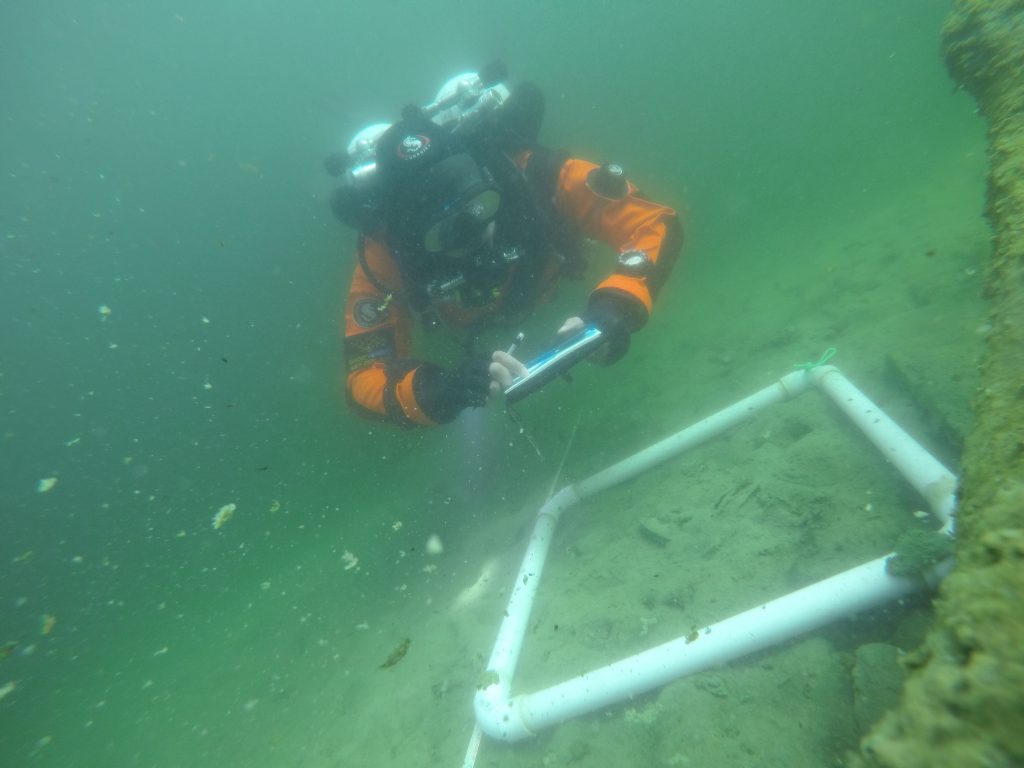
I have always tried to document observations in an attempt to better understand environmental changes. The biggest challenge I have faced was getting my observations to organizations that are able to use them in a constructive manner. We all constantly see changes in our environments but, are often unable to make a positive change.
Citizen science is a greatly underutilized resource by regulatory agencies. There are a myriad of citizen science groups that actively want to participate in the monitoring of their local ecosystems but they lack the guidance or platform to do so. The Project Baseline Initiative provides an amazing platform for people to display their findings, and in combination with guidance from local authorities the resulting projects can be an overwhelming success.
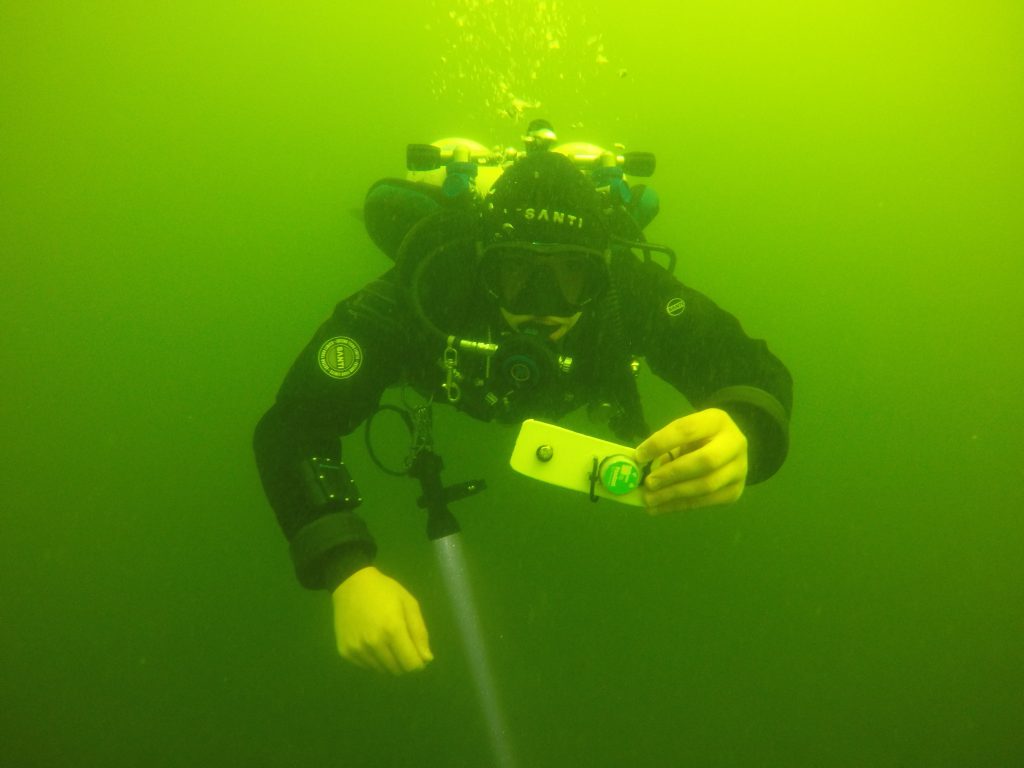
The Project Baseline Lake Pupuke initiative has been running since 2017 and recently we expanded the project to include Lake Rototoa. Both projects have been an amazing success and with the help of the Project Baseline Scholarship we were able to make significant discoveries and collect robust scientific data that informed management strategies and increased public awareness.
After 3 years of research and monitoring at Lake Pupuke we have identified the cause behind the environmental decline seen at the lake. We have collaborated with local government and national research institutes as well as community groups. We have appeared on several media platforms. Our data has formally contributed to official council reports and we have driven better environmental outcomes and awareness for aquatic ecosystems in New Zealand.
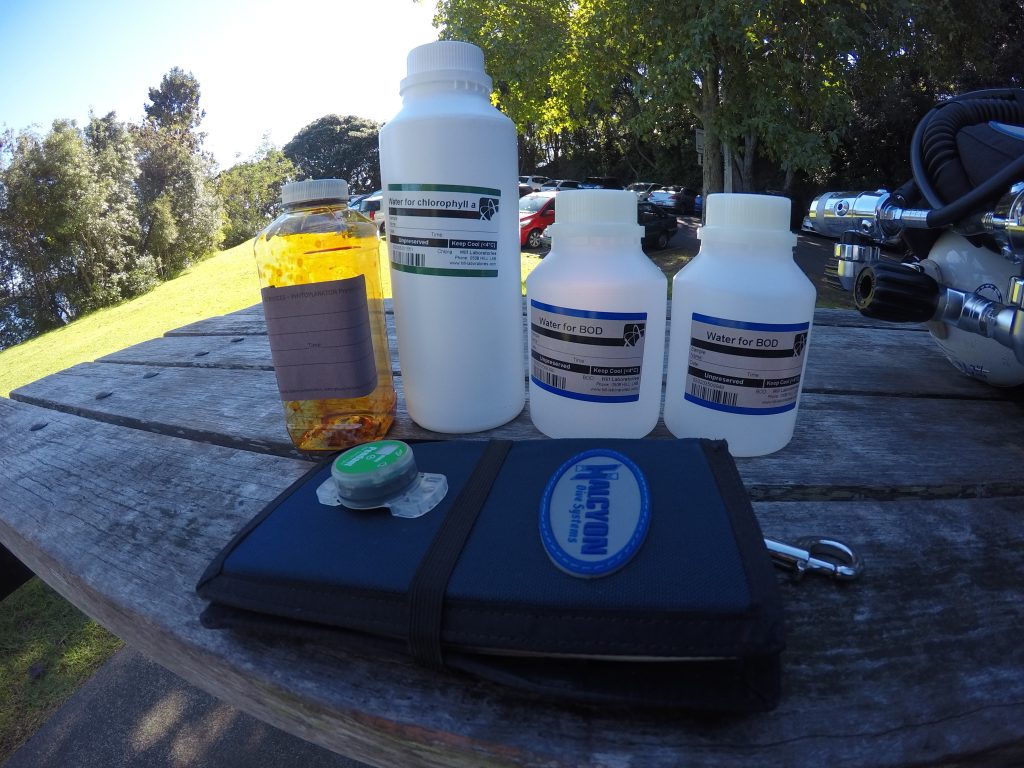
The Lake Rototoa project is a new addition and has already contributed novel findings. This project is focused on monitoring endangered native freshwater mussels and using them as a sentinel species to track lake health over time. This work feeds into the regional council led restoration plan.
We developed the first standardised survey method, aimed specifically at surveying these species, that will be implemented by national research agencies to obtain comparable surveys across the country. We discovered that a recent extinction event had occurred within the past 10 to 20 years and that there is no juvenile recruitment occurring. The mussel beds at Rototoa are at the brink of a full population collapse and the data collected from detail surveys makes this project the first of its kind in New Zealand.
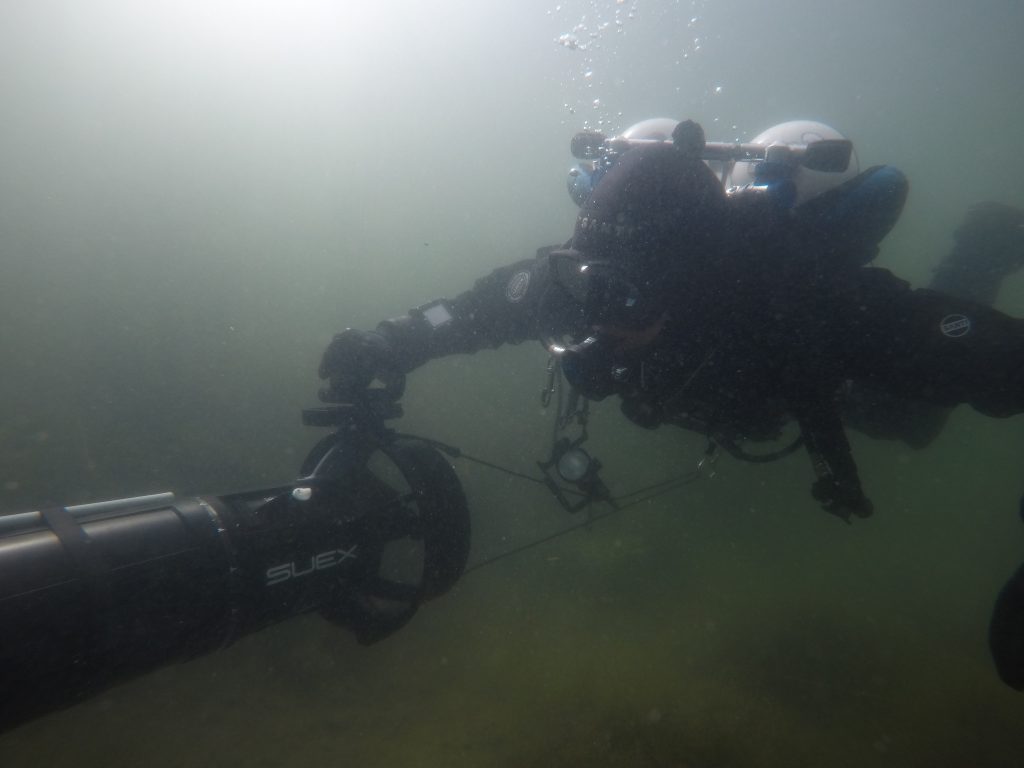
We have had a significant boost in outreach and have an ever-growing Facebook page with more than 540 followers. We have engaged with several community conservation groups and are well recognized as an example of an effective citizen science group.
None of this would have been possible without the generous funding from Project Baseline, the scholarship was used to purchase equipment needed for surveys and sensor installations. Due to the challenging and ambitious project goals we needed to develop a lot of creative solutions to make sure sensors stay in place and are able to be installed in a variety of locations with varying substrates. These solutions often ended up costing a fair amount and the scholarship was very much appreciated as it allowed to purchase quality equipment suited for the task.
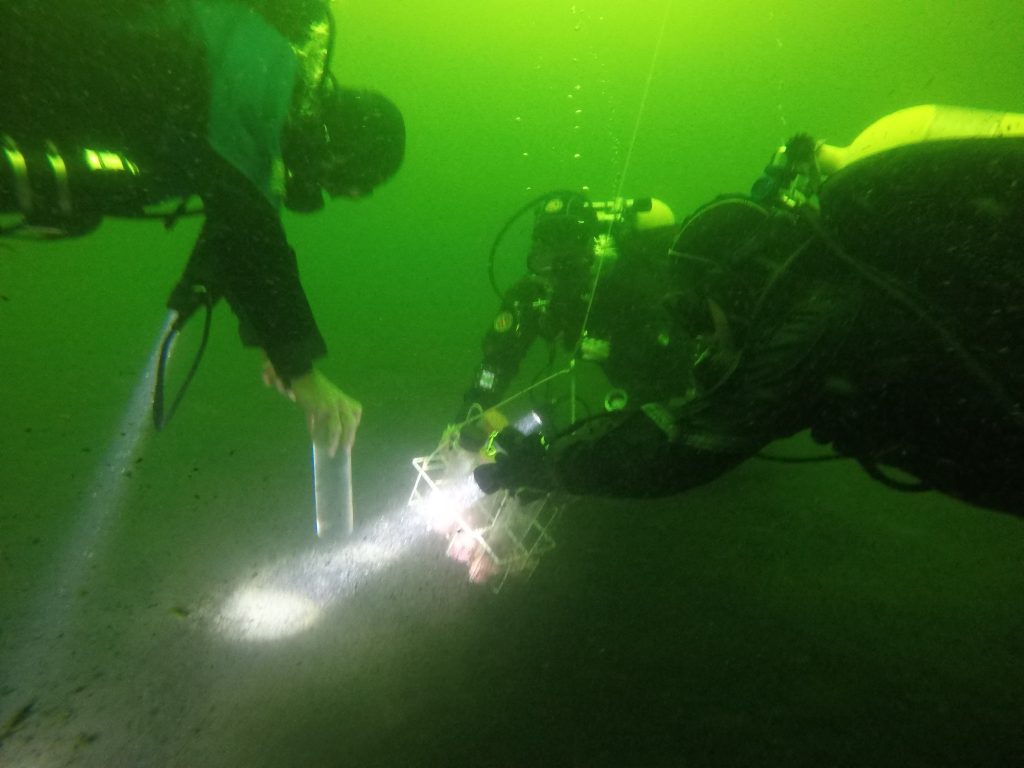
We also used the funds to purchase basic survey equipment like 100m tapes for transects, PVC pipes for quadrates, line pegs, survey reels for mapping and water proof paper for the survey/data sheets. These basic tools are essential for scientific data collection.
Aside from equipment we used a portion of the funds for advertisement and outreach. We regularly boosted key Facebook posts which helped generate wider interest from people outside of the dive community. We ran targeted Facebook advertisements to selected demographics that we thought would be interested in the project. We held a Project Baseline Event, with Todd Kincaid as the guest speaker, at a local sustainable event centre and the scholarship funds assisted with the venue hire and chair rental.
Project Baseline has provided an amazing tool to facilitate the collaboration between citizen science and local government by formalizing community driven data collection. The Project Baseline Lake Pupuke Initiative is a proven example of how citizen science can be used to satisfy critical knowledge gaps and directly feed into regulatory strategies with the common goal of creating a better, healthier environment.
